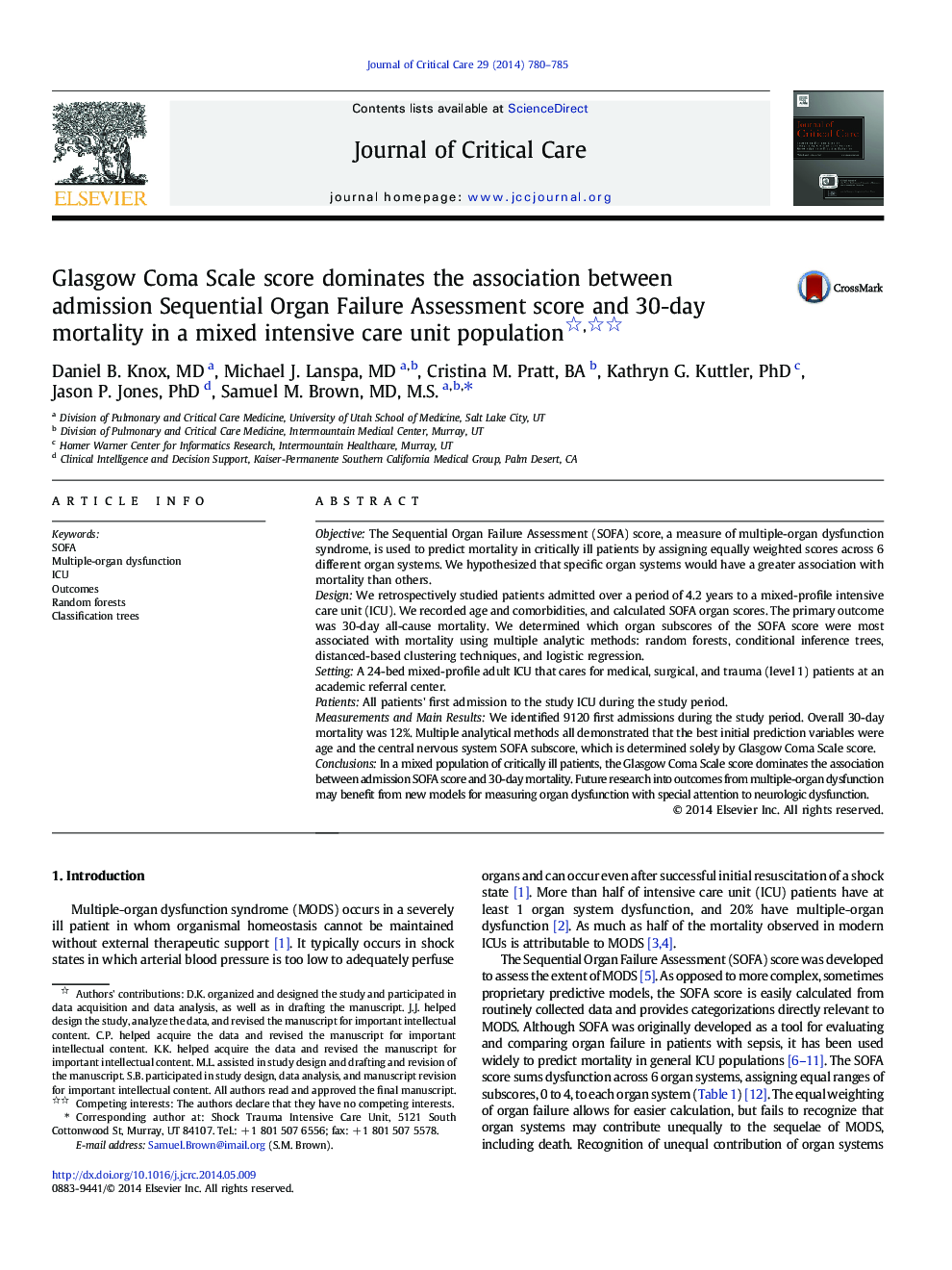| Article ID | Journal | Published Year | Pages | File Type |
|---|---|---|---|---|
| 5885975 | Journal of Critical Care | 2014 | 6 Pages |
ObjectiveThe Sequential Organ Failure Assessment (SOFA) score, a measure of multiple-organ dysfunction syndrome, is used to predict mortality in critically ill patients by assigning equally weighted scores across 6 different organ systems. We hypothesized that specific organ systems would have a greater association with mortality than others.DesignWe retrospectively studied patients admitted over a period of 4.2Â years to a mixed-profile intensive care unit (ICU). We recorded age and comorbidities, and calculated SOFA organ scores. The primary outcome was 30-day all-cause mortality. We determined which organ subscores of the SOFA score were most associated with mortality using multiple analytic methods: random forests, conditional inference trees, distanced-based clustering techniques, and logistic regression.SettingA 24-bed mixed-profile adult ICU that cares for medical, surgical, and trauma (level 1) patients at an academic referral center.PatientsAll patients' first admission to the study ICU during the study period.Measurements and Main ResultsWe identified 9120 first admissions during the study period. Overall 30-day mortality was 12%. Multiple analytical methods all demonstrated that the best initial prediction variables were age and the central nervous system SOFA subscore, which is determined solely by Glasgow Coma Scale score.ConclusionsIn a mixed population of critically ill patients, the Glasgow Coma Scale score dominates the association between admission SOFA score and 30-day mortality. Future research into outcomes from multiple-organ dysfunction may benefit from new models for measuring organ dysfunction with special attention to neurologic dysfunction.
